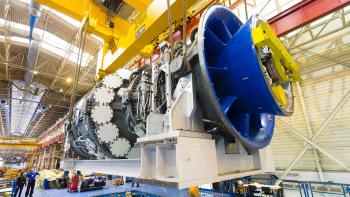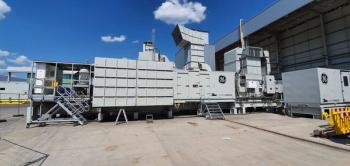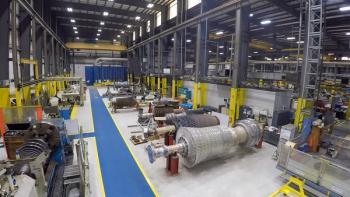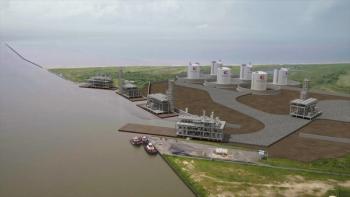
Mitsubishi Hydrogen Demonstration Facility
Mitsubishi Power is creating an in-house structure for systematic validation of the hydrogen value chain from production to power generation. Hydrogen production and storage equipment will be added to its existing validation facility at the Takasago Machinery Works in Japan. The Takasago Hydrogen Park will support commercialization of hydrogen gas turbines by 2025.
The goal is to enhance product reliability through steady demonstration testing at in-house facilities, with validation using large0frame JAC class turbines and small to mid-sized H-25 class turbines. The target is for gas turbine emissions to be reduced to zero carbon while maintaining low NOx levels.
Mitsubishi Power has already announced its 30% hydrogen co-firing for large-frame gas turbines and will use Takasago Hydrogen Park to commercialize small and large frame gas turbines on a path to 100% hydrogen firing starting in 2025. The facility will be located adjacent to the T-Point 2 combined cycle power plant validation facility. The company has begun to test and demonstrate operations of technologies including hydrogen production and storage and hydrogen fueling of gas turbines, aiming to commence operations in fiscal year 2023. The hydrogen production facility utilizes a water electrolysis system, and Mitsubishi Power plans to conduct successive testing and verification of other hydrogen production technologies such as turquoise-hydrogen production by pyrolysis of methane into hydrogen and solid carbon, etc.
An integrated system for all aspects of hydrogen-related technologies, from development to demonstration and verification, will be established at the Takasago Machinery Works. For the combustion chamber, the key component of hydrogen gas turbines, Mitsubishi Power will create a workflow that includes development at the development center, design, production of an actual machine at the manufacturing plant, and validation testing at the demonstration facility. Mitsubishi Power’s gas turbine development process encompasses verification testing of all elements at the basic design stage, the incorporation of those results in the detailed design, and validation using an actual machine. Completing this development cycle within the same plant will allow for quicker and more certain product development and commercialization.
Newsletter
Power your knowledge with the latest in turbine technology, engineering advances, and energy solutions—subscribe to Turbomachinery International today.




